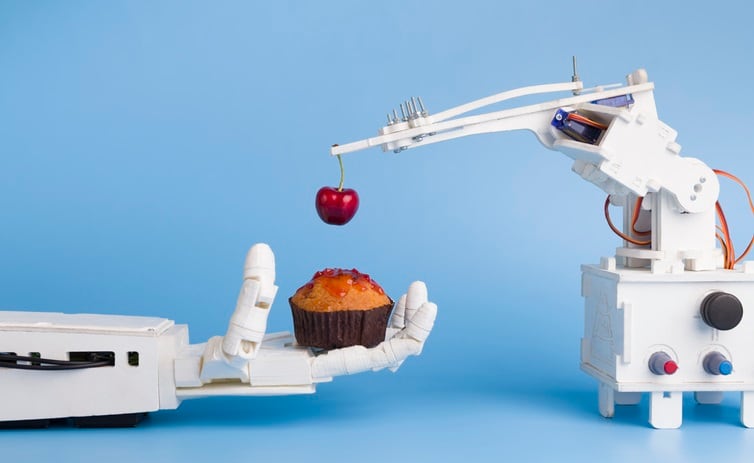The increasing number of independent artisan bakers with proprietary recipes and focused consumer groups is a major driver for the overall bakery market, which registered a revenue of more than $450bn in 2018.
The pivotal health and wellness trend is also propelling consumers towards artisanal consumption, perceived to tick the boxes of natural, healthier and sustainability.
“With spreading awareness about the effects of carbohydrates on obesity, and the digital age pushing the consumers towards a more sedentary lifestyle, they are willing to pay extra for healthier products such as whole wheat or multigrain based baked foods,” Global Market Insights (GMI) analyst Soumalya Chakraborty told BakeryandSnacks.
He added that easy market entry prospects, low investment and innovations in the baking processes have made the competitive landscape highly fragmented in nature, with a vast segment of the market held by independent bakers.
However, “this has had a highly positive impact on the bakery market growth in various regions across the world.”
Improved baking processes
The demand for different processing equipment varies significantly, depending on the producer – larger producers like Grupo Bimbo, Aryzta, Flowers Foods and Yamazaki, for instance, require larger, automated lines for mass production.
Improved baking processes have enabled manufacturers to mass produce items with longer shelf life, better taste and flavour, and more aesthetic appeal.
“This has helped to bring down the cost of baked foods significantly, when compared to small or medium scale productions.”
On the other hand, artisanal bakeries require smaller processing equipment, which are often flexible and have a smaller footprint.
Big or small, though, developments in automation in areas like artificial intelligence and smart manufacturing techniques is a major factor propelling the segment.
According to Global Market Insights, the main players in the bakery processing equipment market – like Buhler, GEA, Heat and Control, and The Middleby Corporation – are constantly striving develop machines that boost productivity and manufacturing quality, but still have an eye on reducing the overall environmental impact.
“Companies are investing huge sums in R&D activities to enhance operational efficiency and develop application-specific products per customer requirements,” said Chakraborty.
“Additionally, manufacturers are offering various services such as installation, predictive and preventive maintenance, and equipment training, to meet diversified customer requirements.”
Today’s on trend solutions include machines with remote monitoring systems – saving time and money on repairs and equipment downtime. Additionally, automatic timers facilitate easy monitoring and setting of the duration for mixing and kneading, which ensures precise dough texture and significantly reduces energy consumption by automatically turning off operations after programmed timings.
“These machines are also gaining demand in Asia Pacific, Latin America and Africa, which is attributed to a rise in household disposable incomes and changing lifestyles of the urban population,” said Chakraborty.
East meets West
Global Market Insight’s data shows that baked goods consumption has been evolving with an average rate of 5% per year over the past few years. Over 95% of this demand is attributed to bread, the staple diet in a majority of Western countries.
It is also fast gaining popularity in Asia as a preferred breakfast choice.
“Asian countries, including Japan and China, are witnessing a high demand for European bread and pastry items,” said Chakraborty. “With growing income levels and improving lifestyle, coupled with increasing affordability of different types of delicious baked foods, the general population is becoming aware of the tens and hundreds of options available at supermarkets, convenience stores, as well as online retail channels.”
Going forward, Global Market Insights forecasts the growing acceptance of processed baked food products, such as frozen bakery, along with the ever-important taste criteria and eye-appealing packaging, will also significantly influence the sector.
“Providing a myriad of options in terms of taste and flavour, the baked product manufacturers invest dearly on packaging and brand publicity to attract more customers and gain competitive advantage over their peers. With the increasing trend of impulse buying of baked treats such as bagels, pretzels, scones, waffles and pancakes, the bakery processing industry will witness high growth over coming years.”
Avenues to innovate
Bakery businesses have several opportunities when it comes to innovation, said Chakraborty.
- Frozen – These items are either ready-to-prove, ready-to-bake or fully baked, depending on consumer preference, which helps in extending the otherwise low product shelf life, while preserving flavour and aroma associated with the baking process. This is a relatively new introduction, representing only a little more than 5% of the overall bakery market in 2018, but has immense potential over the decades to come. Aryzta, for instance, installed a frozen bread production line at its facility in Ontario, Canada, earlier this year to expand its product portfolio in North America.
- Better-for-you offerings – The increasing health consciousness among consumers of all age groups and regions, and impeding threats from diseases such as diabetes, digestive disorders and obesity, is shifting focus towards baked products that have a lesser impact on human health. Some of these items include digestive biscuits and cookies, and baked items with lower fat and sugar content. Whole grain and multigrain options are popular here, too.
- Customised bakery – This includes combining the customer’s preference of ingredients, flavour, aroma, texture, as well as nutritional content, and creating a product specifically for them. This can give a competitive advantage over other bakers, as the final product is tailored and exclusive.
- Automation – Introduction of artificial intelligence and machine learning is opening new growth avenues in the bakery industry ecosystem. With the manufacturing process automated and able to control the processing parameters, a continuous and long-term supply of baked items with same qualities can be ensured at all times.


